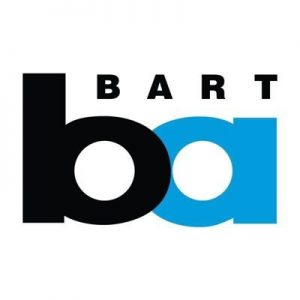 California’s Bay Area Rapid Transit is taking swift action to reduce operating costs as ridership levels have declined by 90% as a result of the COVID-19 pandemic and shelter in place orders. BART has done an exhaustive review of ridership and train car loads this week and will make the following changes to service until further notice:
California’s Bay Area Rapid Transit is taking swift action to reduce operating costs as ridership levels have declined by 90% as a result of the COVID-19 pandemic and shelter in place orders. BART has done an exhaustive review of ridership and train car loads this week and will make the following changes to service until further notice:
Starting Monday, March 23, 2020, BART will provide service Monday-Friday from 5:00 a.m.-9:00 p.m. (currently service is 5:00 a.m.-midnight). Current weekday train frequency will remain. Starting Saturday March 28, 2020, Saturday and Sunday service will be from 8:00 a.m.-9:00 p.m. (currently Saturday service is 6:00 a.m.-midnight and Sunday is 8:00 a.m.-midnight). Current weekend train frequency will remain. All riders must be in the system by 8:45 p.m. to have a guaranteed ride to their destination.
BART will monitor ridership data each day to determine how long these service hours will be in effect. Ridership after 9:00 p.m. has dropped substantially and now represents only 3 percent of total daily ridership. Closing early is a better option than running less frequently or running shorter trains after 9:00 p.m. because BART will realize immediate costs savings to its operating budget by being able to reassign a significant number of operating staff to capital projects. These are projects that will accelerate our system reinvestment work.
“This decision is being made now because all nine counties in the Bay Area have shelter in place orders and our ridership has plummeted 90 percent,” said BART General Manager Bob Powers. “We are taking a data-driven approach to these decisions to ensure as few people as possible are impacted. These are extraordinary times and we did not take this decision lightly. Our system operates using public dollars and we have an obligation to make financially sound decisions about service levels.”
General Manager Bob Powers is closely monitoring revenues and expenses daily, adjusting while also balancing our obligation to provide public transit to essential workers in the region. The immediate loss of fare revenue has a devastating impact on BART’s operating budget as 60 percent of our budget to provide service is from fare dollars. BART is seeking emergency funds from all levels of government during this crisis. A sustained ridership loss of 90 percent and a 50 percent reduction of economic activity impacting other revenue sources could reduce BART’s monthly revenues by approximately $60 million.
—Bay Area Rapid Transit


